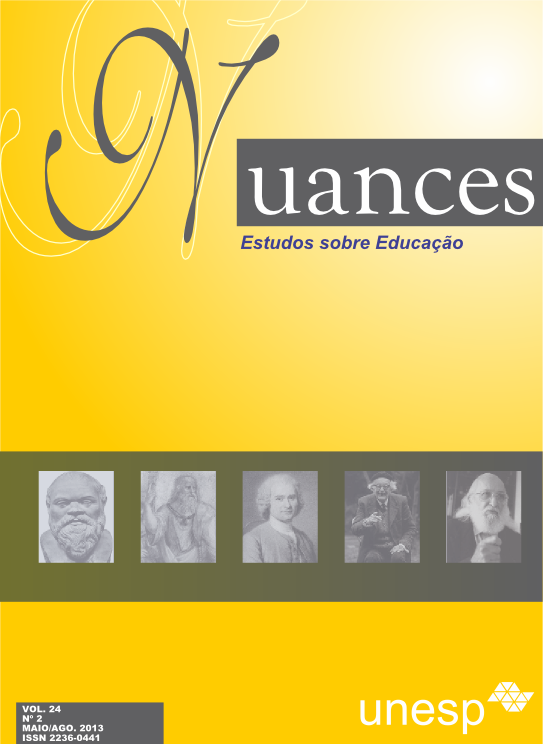A PROBLEMATIZAÇÃO DAS POLÍTICAS PÚBLICAS EDUCACIONAIS NA ÁREA DA EDUCAÇÃO BILÍNGUE DE SURDOS
DOI:
https://doi.org/10.14572/nuances.v24i2.2481Keywords:
Educational politics, Deaf education, Bilingual education, DeafAbstract
The deaf community after historic mobilization by her rigths obtained in Brazil, through the Law n. 10.436/2002, regulated by the Decree nº 4.626/2005, the official recognition of the Brazilian Language of Signs (Libras) as a legal way of communication and expression of the deaf people and the right to a bilingual education. However, as opposed to the predicted in Brazilian legislation, the political setting, in favor of a compulsory and indiscriminate inclusion of the pupils in the regular education, walked in the opposite direction, with the dismantling of deaf schools. However, as consequence of the strong social movement of the deaf groups, begin to be signalled news actions, in accordance with the yearnings of these people by the corroboration of the rights already conquered in the legislation. Example of that is the creation of the first bilingual school in Palhoça, Santa Catarina, in the year 2012 as well as the approval of Law n. 5016, of 11 January 2013 that establishes the parameters for the development of educational public politics directed at bilingual education for the deaf it will be implemented in the scope of the Federal District. The present article presents an d discusses the relations between the educational public politics, complicating them from the perspective of the education defended by the own deafs. It emphasizes also, upon stripping the damages linguistic, of identity, social and cultural between others, the separations of the implications by the which the deafs majority it’s against the inclusive process in the regular education.
Downloads
Downloads
Published
How to Cite
Issue
Section
License
Atribuição-NãoComercial
CC BY-NC
Esta licença permite que outros remixem, adaptem e criem a partir do seu trabalho para fins não comerciais, e embora os novos trabalhos tenham de lhe atribuir o devido crédito e não possam ser usados para fins comerciais, os usuários não têm de licenciar esses trabalhos derivados sob os mesmos termos.





